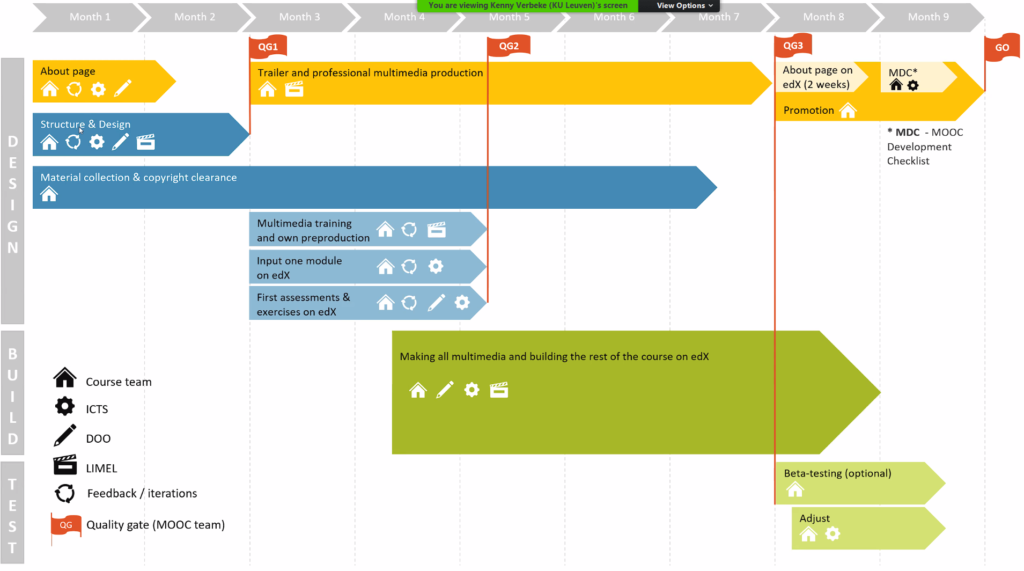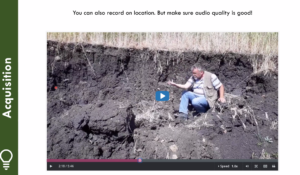This week I was fortunate enough to attend a presentation by Kenny Verbeke and Elke Vanderstappen from KU Leuven about their MOOC development processes. They shared how they were using MOOC quality gates (click on the image below for a larger version).

MOOC Quality Gates from KU Leuven
At Quality Gate 1, the MOOC Development team checks the structure and design is planned, so they and the content authors know exactly what needs to be created. They use a similar process to what we do here at the University of Edinburgh, with an online version of ABC Learning Design, using learning type cards that have been customised specifically to suit MOOCs. Before the ABC Learning Design workshop is run, the content authoring team are expected to spend up to 1 hour viewing examples of what is possible from other MOOCs, in order to provide inspiration for the design workshop. This is provided in the format of a video (see image below).

Example of on-location video from KU Leuven
At Quality Gate 2, multimedia training is undertaken and one week of the course is entered into the MOOC platform – in this case edX. One lot of assessments and exercises are also completed on the MOOC platform. This ensures the content authors understand the process that will follow for the creation of the rest of the MOOC. At that point, the rest of the multimedia production and course build is undertaken.
At Quality Gate 3, the MOOC development team check with the content authors whether the MOOC can be completed within the next 2 months. At this point too, beta-testing usually takes place, organised by the content authors. Once this gate is passed, the course can be promoted and the landing page can be developed and published, around 6 weeks before the course actually starts. Learners can start enrolling on the course once the landing page is published, so it is important the rest of the course development and approvals can be completed before the start date.
For Final sign off (Go): the MOOC Development Checklist is completed by the MOOC development team, to ensure the course meets the quality standards of the MOOC platform. At this stage, most of the course needs to be ready.
The team at KU Leaven run a MOOC called ‘Making MOOCs at KU Leuven’ and are in the process of updating this to structure it around their new quality gates system. The Leuven Institute For Media And Learning offer support materials to help staff to develop quality media for their MOOCs. At the University of Edinburgh we offer similar support resources to staff developing videos either in our studios, or at home.
The KU Leuven team also provides templates to help content authors to develop their MOOCs. Here at the University of Edinburgh we also provide templates to help academic teams with developing MOOCs and are looking at how to make these more readily available.

Leave a Reply